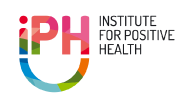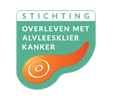Doctor's association puts food back into medicine
No pill diet, but lifestyle by prescription! That is the future of our healthcare, says the Dutch Doctor and Nutrition Association (Vereniging Arts & Voeding). The Association was founded in 2016, as a reaction to the near total absense of nutritional education in the curriculum of general practitioners and doctors in the Netherlands. In two years time only, it became clear that the association is filling in a gap; it already has 600 members and is getting widespread media attention.
"A lifestyle related disease should be treated with lifestyle advice" said Tamara de Wijer, founding president of the Association, during a debate in the Rode Hoed in Amsterdam, on 12 May 2018. She referred to the words of Hippocrates: "Let food be thy medicine, and let medicine be thy food". New doctors in the Netherlands are sworn by the oath of Hippocrates, but his advice on food is completely neglected. Tamara de Weijer says she only received 3 to 5 hours of food education during her nine years of training to become a general practitioner.
The large majority of diseases that people have today, are related to food and lifestyle, said De Weijer. But even though it has now been proven that Diabetes-2 can often be completely reversed by a change in diet and lifestyle, the disease is often being treated with insuline and pills only. Typically, a patient with colon cancer, irritable bowel syndrom, chronical tiredness or eczema will not receive any food and lifestyle advice, althought it can often make a huge difference.
The lecture of De Weijer made clear that our society can save billion of euro's in health care expenses when doctors give better lifestyle and food advice to their patients. "Research has show that patients put the highest trust in their doctors, when it comes to food advice. Even though most doctors at the moment know virtually nothing about it. But research also shows that it often takes very little time to motivate patients to change their lifestyle and food patterns, if it helps them to recover from diseases."
In her reading, De Weijer provided the well-documented example of an elderly man, John (https://www.youtube.com/watch?v=oxiQR84jDBM), who had been a diabetes patient for 15 years, injecting high amounts of insuline daily and taking 13 different prescribed medicines. With a strict food and exercize regime he was able to stop injecting insuline within a few days, and two years later he is 100% medicine-free.
"It may feel uncomfortable to refer patients with chronic complaints to the greengrocer and the gym instead of to the pharmacy. Yet we are ready" says the website of the Association. "By improving knowledge and skills, building a bridge between science and practice, but also by representing the interests of doctors and medical students. As far as we are concerned, lifestyle as a medicine has been fully implemented in healthcare over 10 years."
(header photo: Tamara de Weijer speaking at a congress; photo by Maaike de Vries, director of Keer Diabetes Om)





























